Pavel Filatieff knew the consequences of what he said. The former paratrooper knew he was at risk of imprisonment, called a traitor and shunned by his former comrades-in-arms. His own mother had encouraged him to fleeRussiawhile he still could. he said anyway.
"I see no justice in this war. I don't see the truth here," he said at a table in a quiet café in Moscow's financial district. Ukraine
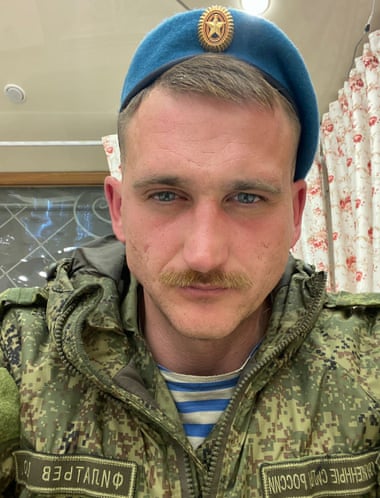
"I'm not afraid to fight in wars. But I need to feel right to know what I'm doing is right." Yes, I believe this is all failing, not only because the government stole everything, but because we Russians don't feel that what we are doing is right."
Two weeks ago, Filatyev took to his VKontakte social media pages and published a 141-page bomb story. How his paratroopers were sent from Crimea to mainland Ukraine, entered Kherson, he captured the seaport, and near Mykolaiv he was under heavy artillery fire for more than a month. He was then eventually injured and evacuated from the conflict with an infection in his eye.
By then he was convinced that he had to expose the corruption at the heart of Russia's aggression against Ukraine. "We were sitting under Mikolaif artillery fire," he said. "At that point, I already thought we were just bullshit here. What do we need this war for? And I really had this thought: 'God , if I survive, I will do everything I can to stop this.” Even the word war was publicly banished. “Even though I know nothing will change, I can't keep quiet anymore. Maybe I did something stupid and got myself into a lot of trouble,” says Filatyev. . I lit another cigarette.
His memoir ZOV is named after the tactical markings on Russian military vehicles that have been adopted in Russia as symbols of pro-war support. So far, there have been no more detailed and spontaneous testimonies from Russian soldiers who took part in the invasion of Ukraine. Excerpts were published in Russian independent news outlets, and Filatiev appeared on video in his interview on TV Rain's Television.
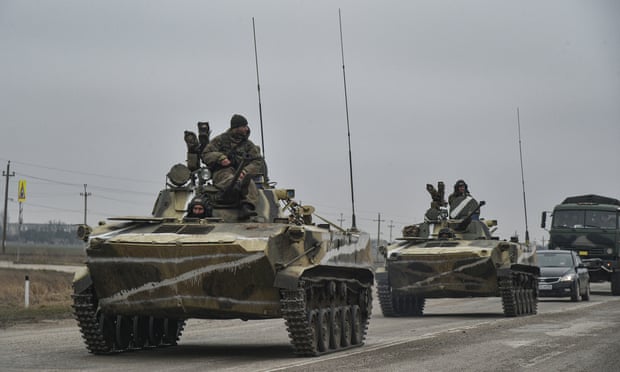
"It is very important that someone speaks up first," said Gulagu, a human rights network that helped Filatiev leave Russia early. net head Vladimir Osekkin said. this week. This made Filatiev the first soldier known to have fled Russia for opposing the war. "And we're opening Pandora's box."
This week, Russian investigative site iStories, which is banned from leaving Russia, shot dead a civilian in the Ukrainian city of Andriivka. published another Russian soldier's confession on camera.
56th The Filatiev Crimea-based air assault regiment, which belonged to the Guard, described how his unit, exhausted and ill-equipped behind a hail of rockets, burst into mainland Ukraine in late February. explained. "It took me weeks to understand that there was no war on Russian territory and that we had just attacked Ukraine," he said.
At one point, Filatiev described how ravenous paratroopers, the elite Russian army, had captured the port of Kherson and quickly acquired "computers and whatever valuables they could find." Explain how you started. Then they ransacked the kitchen for food.
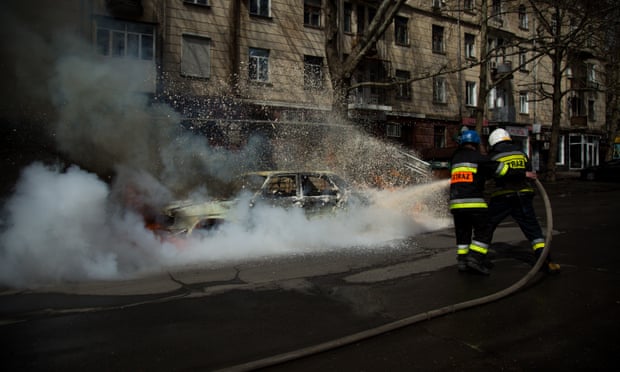
"Like savages, we ate everything there: oats, porridge, jam, Honey, coffee...the limit.Most people spent a month in the fields without any hint of comfort, shower or normal diet.
What savagery people can be driven to by ignoring the fact that they have to eat, eat and wash,” he wrote. "Everything around us gave us a sense of meanness. Like we were just miserable people trying to survive.
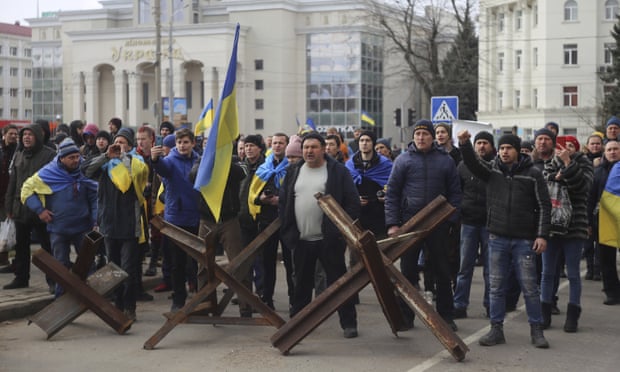
Filatiev saw him in a Moscow park near midnight. He smoked deeply as he told the story, looking nervously around to see if anyone was watching him. soldiers stole computers. "But [the soldier] knows that this is worth more than double his salary. Anyway, no one knows if he will be alive tomorrow. So he takes it." I'm not trying to justify what he did, but I think it's important to explain why people act this way and understand how to stop it...this kind of extreme
He described what he called the "degradation" of the military, including the use of outdated kits and vehicles that exposed Russian soldiers to Ukrainian military counterattacks. criticized for a long time. The rifle he was given before the war was rusty and had a broken strap.
"We were just the ideal target," he wrote, explaining that he traveled to Kherson in his outdated, unarmored UAZ his truck, which he Sometimes I stayed there for 20 minutes. "It was unclear what the plan was. As usual, no one knew anything."
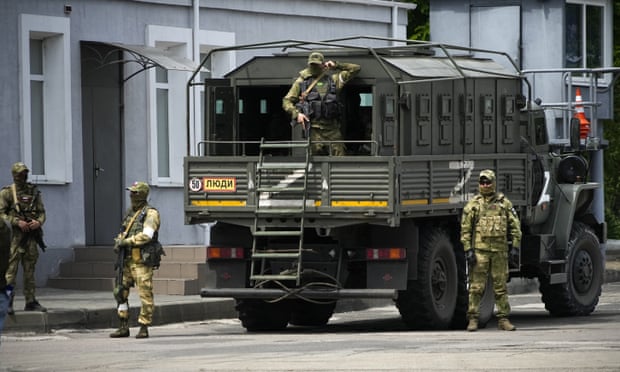
Filatyev explained that when the war dragged on, his troops were trapped in trenches near Mykolaiv for about a month, under Ukrainian artillery fire. there is It was there that the shell blew mud into his eyes, leading to an infection that nearly blinded him.
Amid mounting frustration on the front, he raised reports of soldiers fleeing the front and deliberately shooting themselves to collect his 3 million rubles (£40,542) in compensation, as well as reports of his actions against prisoners of war. I wrote about the rumors of amputation. soldiers and corpses.
In an interview, he said he had never personally seen any abuses committed during the war. But he described a culture of anger and resentment in the military that shattered the outright support for the war portrayed in Russian propaganda.
"Most people in the military are unhappy with what is going on there. They are unhappy with the government and its commanders. They are unhappy with Putin and his politics." They are dissatisfied with the defense minister, who has never served in the army," he wrote.
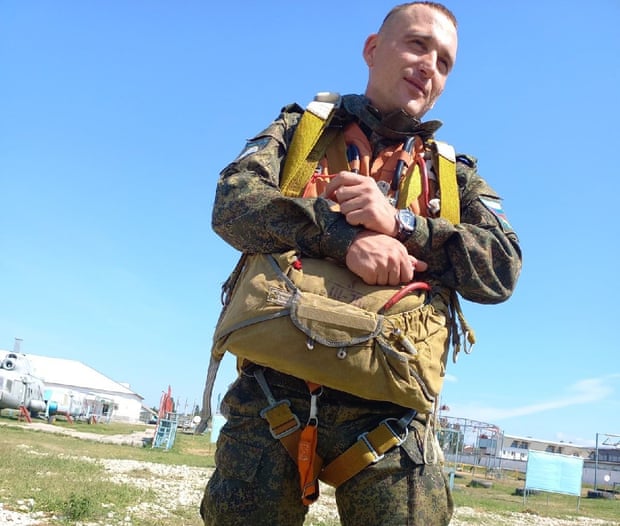
Since going public, he said his entire unit has cut contact with him. However, he believed 20% of them fully supported his protest. And many others, in quiet conversation, conveyed to him their distaste for the patriotism of Ukrainians fighting to defend their territory. Or they were complaining about Russia's mistreatment of its own soldiers.
"Nobody treats veterans here," he said at one point. In a military hospital, he met disgruntled soldiers, including wounded sailors from the Moscow cruiser sunk by Ukrainian missiles in April, shouting senior officers from their rooms. And in ZOV, he claimed that there were "piles of corpses for which relatives had not been paid compensation,"corroborating media reports that wounded soldiers had been waiting for months for payment,. ing.
Filatiev's original plan was to publish a memoir and immediately turn himself in to the police. But activist Osekkin told him to reconsider and repeatedly urged him to flee the country. Until this week, he had refused to do so.
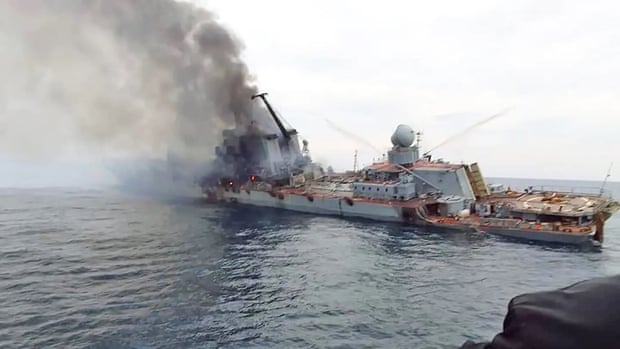
"So I'm going to America. Who am I there? What should I do?" "If I am not needed even in my own country, who needs me?" I lived with a knapsack and tried to stay one step ahead of the police. Still, he admits it wasn't hard to find him.
The Guardian was unable to independently confirm all the details of Filatyev's story, but it did say that he was a paratrooper with the 56th Airborne Regiment stationed in Crimea and was hospitalized with eyes. I have provided documentation and photos showing that. He was injured "while on a special mission in Ukraine" in April and wrote his complaints about the war directly to the Kremlin before going public.
Old photographs show his teenage Filatyev in a blue and white telnyashka (the traditional blue and white undershirt worn by military personnel), his He is shown hanging on a carousel among his fellow soldiers. He was already old, clean-shaven in tawny camouflage posing with a rifle in Crimea before the war began, at the time he was training for the Airborne Forces.
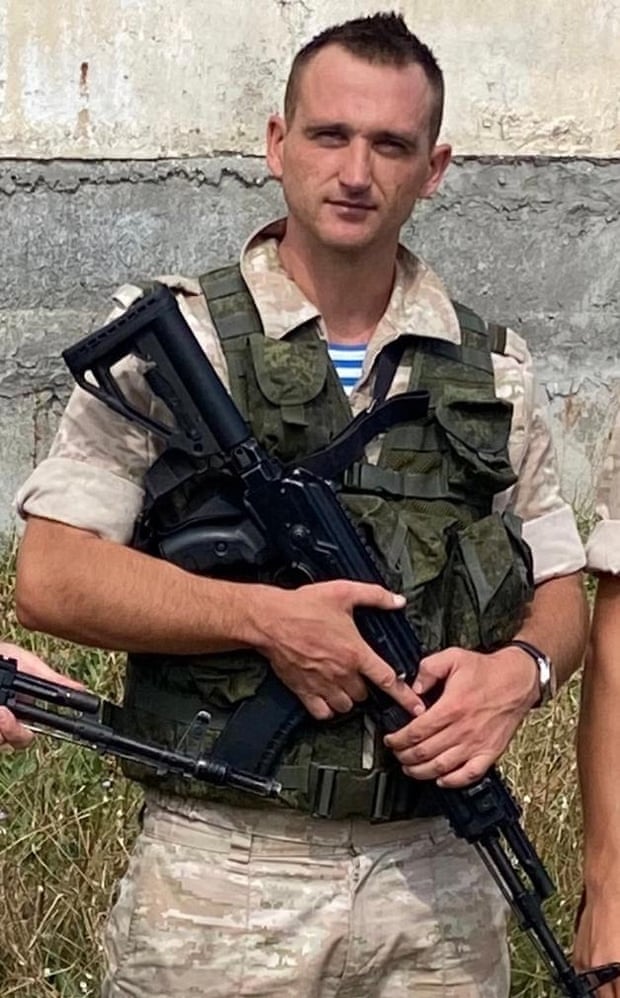
Born in the southern city of Volgodonsk into a military family, Filatyev, 34, spent most of his early twenties in the army. After serving in Chechnya in the late 2000s, he spent nearly a decade as a trainer, working for Russian meat producer Miratorg and wealthy clients, before re-enlisting in 2021 for financial reasons.
Now he is a changed man. He is strong, well-built and articulate, but war and stress take its toll. His bruised cheeks are covered with two week old stubble. He still can't see properly out of his right eye. And he wryly laughs that he has to complain to foreign journalists about the Russian army and that he "drinks beer and talks like a priest."
"The heroism of one is the fault of another, they say," he said. “It is now the 21st century. We have started this ridiculous war and we are calling on our soldiers to perform heroic deeds and sacrifice themselves. What is the problem – we Isn't that dead?"
Most of all, he wondered why he was still free. He had heard that his unit was preparing to indict him for desertion. Still nothing happened.
"I don't understand why they haven't caught me yet," he said when they met at the Moscow station. "I've talked more than anyone in the last six months. Maybe they don't know what to do with me."
A riddle he can never solve. Filatiev fled the country by an undisclosed route late Saturday evening and set out to find a hostel to spend the night. Two days later, Osekkin announced that Filachev had successfully escaped from Russia "before he was arrested." It is still unknown whether he has been formally charged with any crimes in Russia.
"What have these bastards turned our army into, why should they flee the country just to tell the truth," Filatyev wrote in a Telegram message. "I am overwhelmed with the feeling that I had to leave my country."
Even after months of agonizing over how to do so without violating his military service, he publicly spoke about the war. He is one of the few Russian soldiers who spoke to "People ask me why I didn't drop my weapons," he said. "Well, I'm against this war, but I'm not a general, I'm not a defense minister, I'm not Putin. I don't know how to stop this. What a coward to throw down your weapons and abandon your comrades."
It was probably the last time he sat in the busy streets of Moscow, but after a public outcry like that during the Vietnam War, he hoped this would all end. said he wanted. But so far, he said, it seemed far away.
"I am just afraid of what will happen next," he said, imagining Russia fighting for outright victory at a terrible price. "What are we going to pay for it? Who will remain in our country? I myself have said that this is a personal tragedy, because what have we become? And how can it get worse?" Is it possible?"


